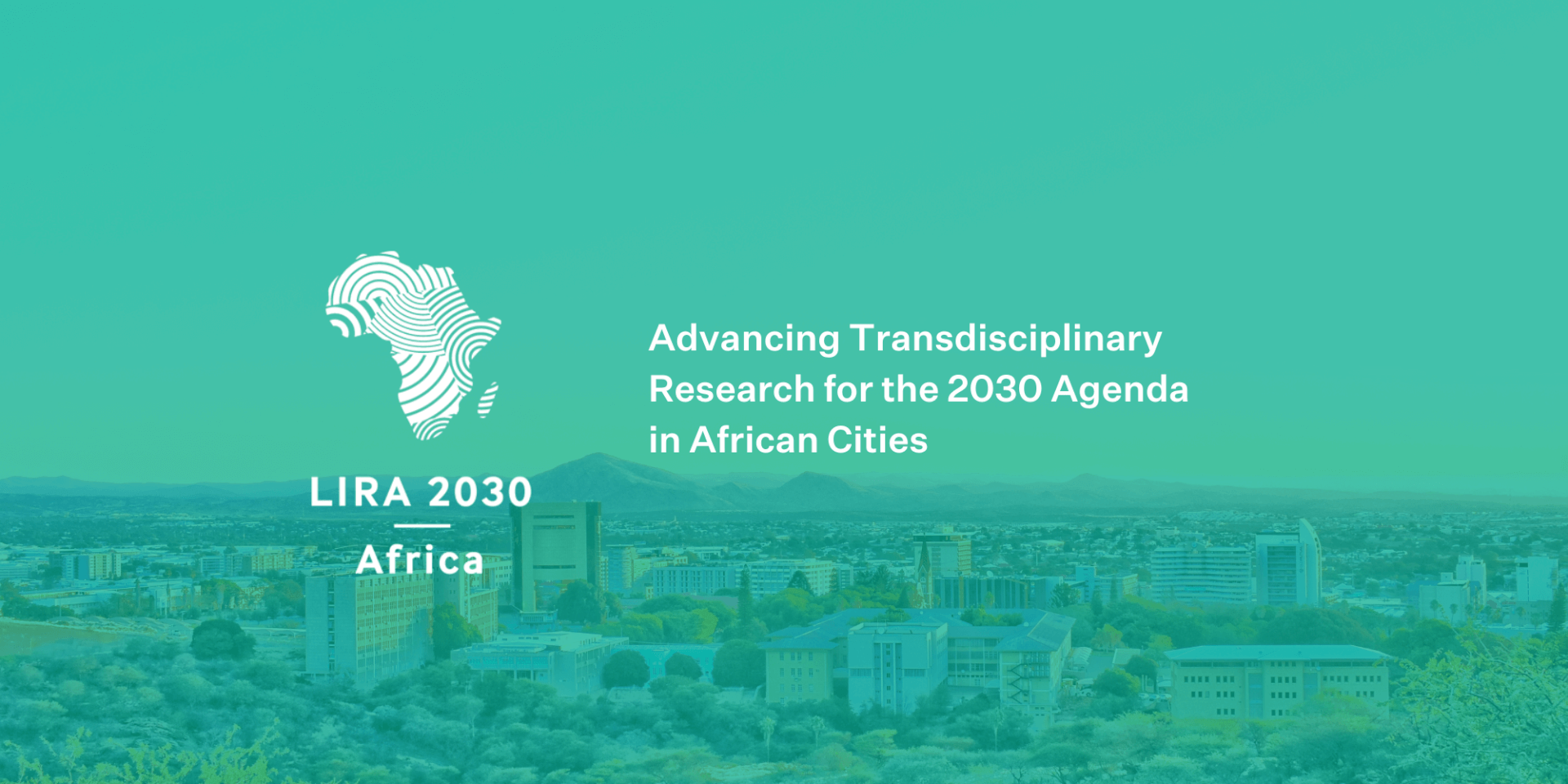
The LIRA 2030 Africa programme is a unique research funding programme that sought to build capacity of early-career researchers in Africa to undertake transdisciplinary research and to foster scientific contributions to the implementation of Agenda 2030 in African cities, at a continental scale.
The programme was implemented from 2016 to 2021 by the International Science Council together with its Regional Office for Africa in partnership with the Network of African Academies of Sciences (NASAC) and with the financial support of the Swedish International Development Cooperation Agency (Sida).
After six years, the knowledge and data generated through the LIRA projects is extensive, and they are not only of academic interest, but also of significance for local communities and policy-makers. All themes dealt with by LIRA projects are central to the 2030 Agenda. The LIRA projects are an illustration of the translation of global agendas at the local level. By fostering new place-based partnerships across different sectors, LIRA projects have helped anchor Sustainable Development Goals (SDGs) in local contexts, and increased the local ownership of and responsiveness of communities to the global agenda.
The programme has contributed to shifting the political economy of research on African cities from the Global North to Africa. Over 60 academic articles and over 20 policy briefs have been published. The LIRA grantees also produced various books, reports and publications, Master’s and postgraduate degrees, GIS maps, databases, training courses and tools.
The value of the transdisciplinary approach for understanding and addressing urban complexity in African cities was endorsed by the entire LIRA community. Using this approach demonstrated the benefits of synergies between different knowledge types in generating new evidence of urban function and dysfunction in under-researched areas in African cities. African urban experiments have shown that transdisciplinary practices are effective vehicles for bridging science-policy divides, facilitating the co-production of knowledge and forging much-needed alternate pathways to urban progress.
LIRA cohort of people has done more than any other group on the continent to substantially advance volume, quantity and the relevance of urban research on the continent. LIRA is ahead of its time, and it was able to harness significant work and initiate significant shifts in thinking that will anticipate shifts in practice in urban research. Now we need to do more: we need to use LIRA to mobilise the African community of urban scholars to think and act differently and to consolidate and advance what we have built.
Susan Parnell, Chair of the LIRA Scientific Advisory Committee, Professor of Geography, University of Bristol, Former Executive of the African Centre for Cities, University of Cape Town
The most significant contribution the programme made is the creation of a community of practice of engaged early-career scholars who are well trained and practiced in transdisciplinary approaches, across diverse African contexts. Projects from across 22 African countries have experimented with alternate ways of engaging with and influencing contemporary challenges, providing rich experience in steering multiple and differentiated urban transitions which serve all who live in cities across the continent.
The implementation of the LIRA programme would not have been possible without the generous support provided by Sida; the strategic vision and commitment of the Scientific Advisory Committee; and the enthusiasm and dedication of African early-career researchers, LIRA trainers and reviewers, as well as the programme management team. Their collective effort and dedication helped to demonstrate the value of transdisciplinary (TD) research in generating extensive context-specific knowledge and solutions on urban challenges together with societal partners.
Recognizing the urgency and importance of continuing the implementation of SDGs in African cities and the need to scale up systemic interventions, the ISC is working with partners in Africa to develop the next phase of the LIRA programme, which will be led by an institution based in Africa.
LIRA has been one of the most significant interventions amplifying urban scholarship and practice in Africa. To stop now would be tragic and even irresponsible.
Zarina Patel, Associate Professor, University of Cape Town
The scientific community of highly motivated TD researchers, the established partnerships with societal partners, TD experiences acquired, and leadership skills developed will all be important resources for the next phase to build on.
My experience with LIRA has been remarkable. I am glad to be selected to be part of this amazing academic journey. I intend to further enhance the relationship through future collaborative engagements with colleagues, communities and practitioners, we have grown to know.
LIRA researcher
If your organization is interested in supporting transdisciplinary research on African urban challenges and solutions, as well as capacity building activities in Africa, please contact [email protected] to discuss collaboration opportunities.